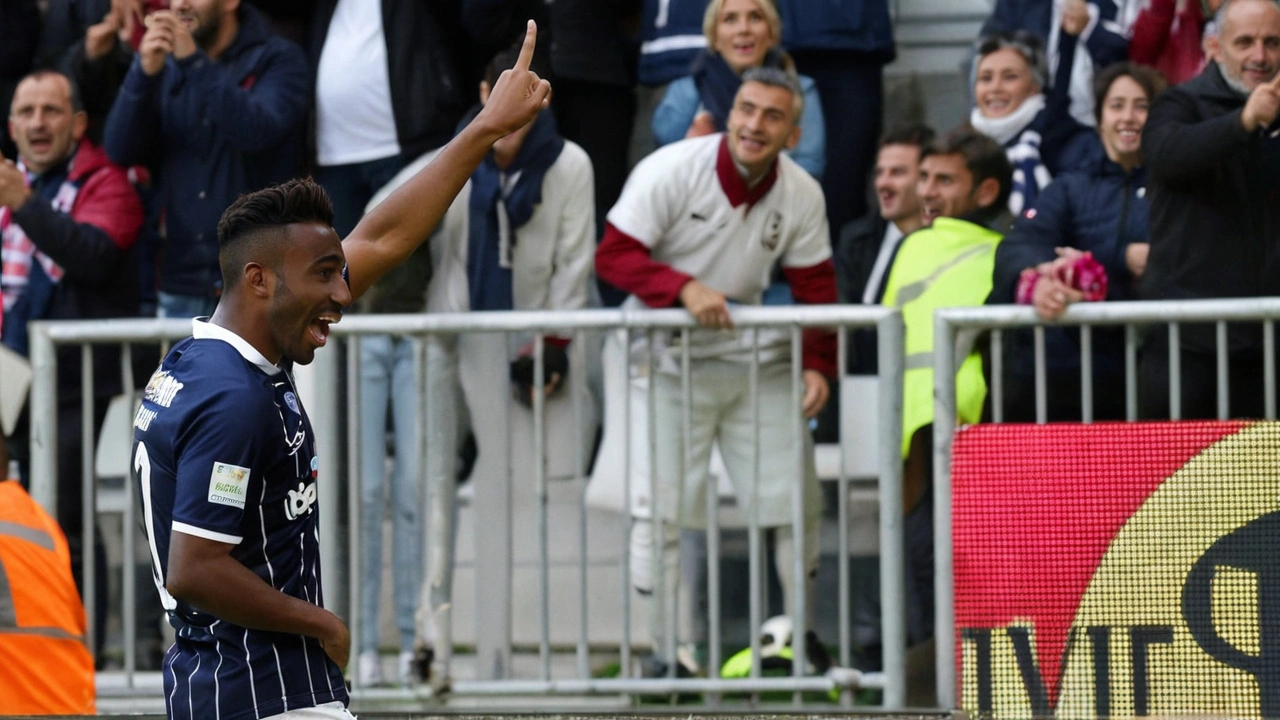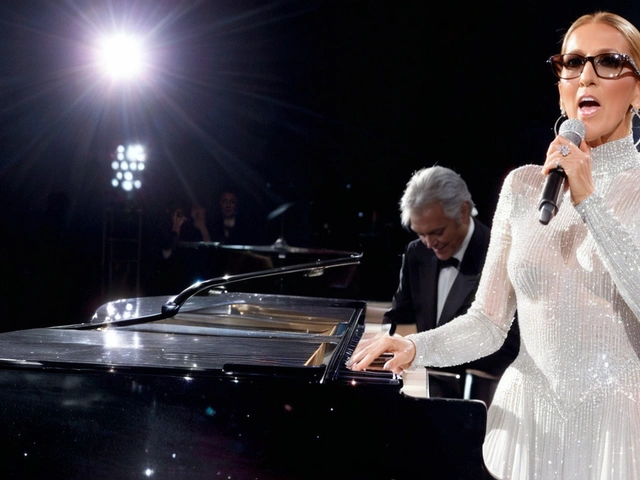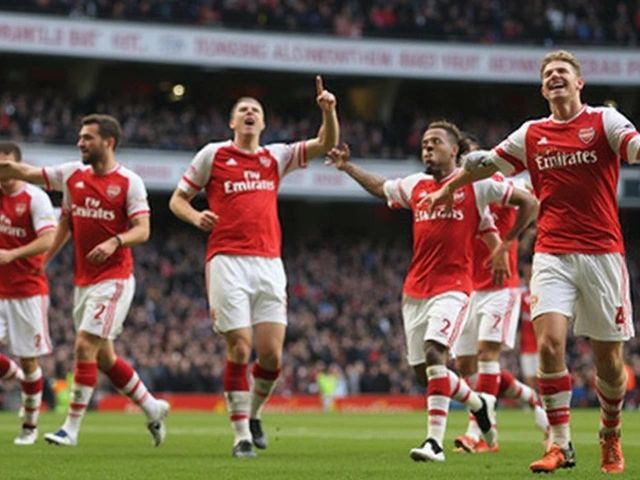Girondins de Bordeaux Surrenders Professional Status Amid Financial Woes
In a surprising turn of events, Girondins de Bordeaux, one of France's historically significant football clubs, has officially renounced its professional status. This decision comes against the backdrop of severe financial difficulties, symbolizing a substantial blow to the six-time French soccer champions. Bordeaux, a club with deep-rooted traditions and a storied history, has faced escalating economic challenges that have ultimately led to this drastic move.
The club's last taste of Ligue 1 glory was in 2009, a season that now seems like a distant memory to the fans who once celebrated their team's success. Over the years, Bordeaux struggled to maintain its competitive edge, and the financial pressures have grown insurmountable. Supporters and analysts alike have been keenly observing the club's descent, but few could have predicted this dramatic outcome.
A Storied History Tarnished
Bordeaux's history is punctuated with moments of triumph and excellence. Founded in 1881, the club has since become a beacon of French football heritage. Winning the Ligue 1 title in 1950, 1984, 1985, 1987, 1999, and most recently in 2009, the team has long established itself as a formidable force in French football. Their last league title, under the management of Laurent Blanc, was achieved with a combination of tactical brilliance and individual flair, featuring players like Yoann Gourcuff, Marouane Chamakh, and Alou Diarra. This golden period elevated Bordeaux to a revered status among the top echelons of French football.
However, the financial landscape of football is as turbulent as the sport itself. With rising operational costs, the need for continuous investments in talent, and infrastructural demands, many clubs have found themselves struggling to balance their books. For Bordeaux, this struggle became increasingly precarious in the past decade. The lack of consistent performance and revenue streams, coupled with poor administrative decisions, accelerated the financial decline.
The Financial Quagmire
The economic paradigm of modern football is such that clubs depend not only on matchday revenues but also on broadcasting rights, sponsorship deals, merchandise sales, and player transfers. Bordeaux's initial struggles were masked by the temporary boon of television revenues and occasional player sales. However, as performances dwindled, so did the club's attractiveness to sponsors and investors.
Several managerial changes and inconsistent on-field performances meant that Bordeaux could no longer capitalize on its potential. A lack of European competition further exacerbated the financial woes, as Champions League and Europa League qualifications are critical for boosting revenue streams. When Nirav Patel, a financial analyst specializing in sports economics, analyzed Bordeaux's financial reports, he noted, "The club's expenditure consistently outpaced its income. Their wage bill remained among the higher echelons of Ligue 1, without the corresponding performance to justify it."
The COVID-19 pandemic played an inevitable role in amplifying these challenges. With matches initially played behind closed doors and then under limited attendance, matchday revenue plunged. The overall market scenario turned hostile, with player values dropping globally, making it harder for clubs to sell talents at profitable prices. For Bordeaux, who were already on shaky ground, the pandemic's economic impact was devastating.
The Decision to Renounce Professional Status
Renouncing professional status is a move that few clubs would ever want to contemplate. For a club like Bordeaux, with its legacy and fan base, the decision is even more striking. However, the club's leadership deemed it a necessary step to prevent further financial hemorrhage and to possibly start afresh from a sustainable platform.
Francois Kamano's goal celebration during the February 2017 match against Guingamp is etched in the memories of fans. It symbolized hope and resilience. But those moments have become rare, and the economic realities have overshadowed them. The image of Kamano celebrating in a Bordeaux shirt is a stark reminder of the highs that the club is striving to return to, someday.
The decision will entail restructuring the club's operations, focusing more on financial prudence and leveraging local talent. The club aims to rebuild its foundation from the grassroots. "Our focus now is on sustainability and reconnecting with the community," said a club spokesperson. "We need to focus on long-term goals rather than short-term glory."
The Road Ahead
Bordeaux has a challenging path ahead. Renouncing professional status doesn't signify an end but a new chapter. The club will continue to participate in football activities, albeit at a different level, with a renewed focus on developing local talent and ensuring financial viability. Fans, though heartbroken, remain cautiously optimistic. They understand that this decision, however painful, might be the only way to preserve the club’s legacy while building a sustainable future.
As the saying goes, “It's always darkest before the dawn.” For Bordeaux, the hope is that this dark phase will eventually lead to brighter days. Football clubs worldwide are taking note of Bordeaux's situation, understanding that financial prudence is just as crucial as on-field success. For now, the once-great Bordeaux embarks on a new journey—one filled with challenges but also with opportunities to redefine its ethos and reclaim its glory in a sustainable manner.




It appears that the governance of Girondins de Bordeaux chose a path that, while regrettable, is perhaps inevitable given the fiscal mismanagement that had been accumulating over the past seasons. The club's decision to relinquish its professional status is a stark reminder that even historic institutions are not immune to economic realities. One must acknowledge that persistent overspending on wages without commensurate revenue streams set the stage for this outcome. Moreover, the pandemic exacerbated existing vulnerabilities, leaving the organization with limited options. In hindsight, a more prudent financial strategy might have averted such a drastic measure.
The abrupt surrender of professional status by Bordeaux is a clear illustration of fiscal irresponsibility and should serve as a cautionary tale for other clubs 🏟️💸. It is astonishing how quickly a storied institution can crumble when financial oversight is neglected. The board's failure to adapt to the evolving revenue landscape is unacceptable. This situation underscores the necessity for stringent budgeting and realistic ambition.
We gotta keep the spirit alive for Bordeaux fans the community can rally around the youth academy and rebuild from the ground up it’s a chance to foster homegrown talent and bring back pride
While the club’s current circumstances are undeniably tough, it's vital to remember that the foundation of any team lies in its supporters and local development programs. By focusing on youth training and community outreach, Bordeaux can slowly regain stability without the pressure of immediate top‑flight results.
It is a lamentable development for French football when a club of Bordeaux’s pedigree succumbs to such fiscal recklessness. One cannot ignore the patriotic implications of losing a symbol of regional pride; nevertheless, the administration's choices reflect a profound disconnect from sustainable sporting principles.
What a drama this is the fall from grace of Bordeaux is like a soap opera without the happy ending
It is truly heartbreaking to witness a club with such a rich legacy face the prospect of stepping back from professional competition, yet within this challenge lies an extraordinary opportunity for renewal and growth. The removal of professional status forces the organization to reevaluate its core values, placing emphasis on financial prudence, community engagement, and the development of homegrown talent. By investing in youth academies and local scouting networks, Bordeaux can cultivate a new generation of players who are deeply connected to the region and its supporters. This grassroots approach not only reduces reliance on expensive transfers but also fosters a sense of identity that can galvanize the fan base. Moreover, a sustainable financial model-built on realistic budgeting, diversified revenue streams, and transparent governance-will safeguard the club against future economic shocks. The pandemic has taught us that external crises can quickly destabilize even the most storied institutions; thus, resilience must become a cornerstone of Bordeaux’s strategy. Partnerships with local businesses, community initiatives, and fan-owned shares could further embed the club within the social fabric of the city, creating a shared sense of ownership and responsibility. While the short‑term disappointment is palpable, history shows that clubs which rebuild from the ground up often emerge stronger, more cohesive, and more beloved by their supporters. The journey ahead will be arduous, requiring patience, collective effort, and unwavering optimism. Yet, if Bordeaux embraces this transformative phase with clarity of purpose and a commitment to sustainable excellence, the dawn after this darkness may very well usher in a new era of triumph that honors both tradition and innovation.
Honestly, I think the whole “financial doom” narrative is overblown. Clubs have survived worse and still managed to bounce back. Bordeaux will probably just rebrand and keep sliding down the ladder. Expect the usual corporate spin and half‑hearted promises.
It’s a bittersweet moment for the fans, and while the situation looks grim, there’s a cultural richness in Bordeaux that can’t be erased 🌍💪. The city’s passion for football runs deep, and with the right focus on local talent, the club can rebuild its identity from the grassroots level. Sure, there are financial hurdles, but embracing community initiatives and fostering a strong academy can create a sustainable pipeline of players. This approach not only honors the club’s heritage but also aligns with the growing trend of clubs prioritising long‑term stability over short‑term glamour. Let’s not forget the historic moments that have defined Bordeaux; they can serve as a source of inspiration for the next generation. If the administration truly commits to transparency and engages with supporters, they can turn this setback into a rallying point for unity and renewed purpose. The road ahead is tough, but the spirit of Bordeaux – its colors, its chants, its love for the beautiful game – remains unbroken. Together, we can watch the phoenix rise from these ashes, stronger and more rooted than ever before.
From a coaching perspective, the focus now should shift to developmental programs that emphasize technical skill and tactical awareness. By building a solid foundation at youth levels, Bordeaux can ensure a pipeline of talent ready to compete when the club regains professional status.
It’s a tragic end for a club once so mighty
Seeing the situation unfold is pretty rough, but honestly, stepping back might give the fans a breather and maybe spark some new local initiatives. Whatever happens, it’ll be interesting to watch how the community reacts.
Let’s be real – this is a textbook case of hubris meeting reality. The club blew its budget on stars while ignoring the less glamorous but essential groundwork. Now the curtains are closing on that saga, and we’ll all see the consequences of reckless spending.
What a dramatic turn! This whole fiasco shows how mismanagement can tarnish even the proudest of institutions. As a true fan, I’m angry that the club’s leadership threw away our heritage for a short‑sighted chase of glory. It’s a betrayal of our national football spirit.
Everyone’s missing the hidden agenda here the board is probably being forced by external powers to shut down the club and shift the market share to bigger teams we’re being played like pawns
Let us approach this situation with calm analysis; while the news is unsettling, it also opens a dialogue about sustainability in football. By encouraging transparent governance and community involvement, we can foster an environment where clubs like Bordeaux thrive without compromising financial integrity. Collaboration between fans, local businesses, and the club’s administration is essential for a balanced recovery.
Hey everyone, let’s keep the conversation positive! This could be the perfect moment for Bordeaux to rally its supporters and focus on building a strong youth system. Together we can turn this challenge into a stepping stone for future success.